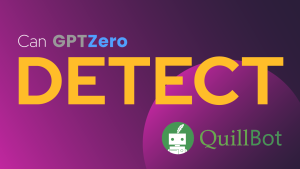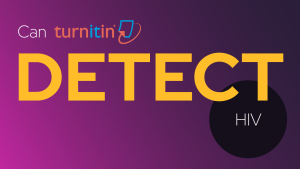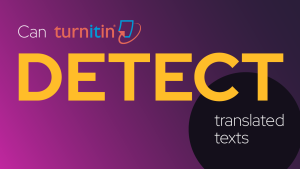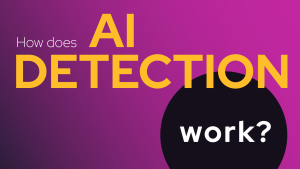
Can Gpt Zero Detect Quillbot
Paraphrasing tools like QuillBot are incredibly helpful for writing tasks such as theses, dissertations, and marketing materials.
Citation Checker: Helping Your Site Rank Better with Efficient Tools

Content writer and editor for Netus.AI
Citation Checker. In today’s educational landscape, research-based learning holds significant importance, with many institutions emphasizing research papers as part of the curriculum. As students strive for academic success, it’s essential to produce original content in their research papers, and proper citation practices play a crucial role in this process.
Accidental plagiarism may result from the lack of knowledge on correct citation methods. Educational institutions view plagiarism as a threat to their academic integrity, which can lead to significant consequences for students involved. To avoid such issues, students should use citation checkers for ensuring sufficient credit is given to other authors’ work used within their papers.
Applying improper citation techniques, such as incorrect capitalization, inadequate acknowledgment of newspapers, videos, or FAQs, can also be considered acts of plagiarism. The use of a reliable citation checker can prevent such errors across various platforms, including Mac, Android, and web-based solutions like Scribbr and Citation Machine.
In their academic journey, students will come across numerous guides and resources that aid in improving research paper quality and overall performance. Utilizing citation checkers not only ensures original content but also maintains the ethical standards valued by educational institutions. By conscientiously using these tools, students can bolster their academic careers with confidence and clarity.
Unintentional plagiarism often occurs when students or writers use parts of existing works to support their arguments without properly citing the sources. This can happen if they fail to place the borrowed information within quotation marks, make a mistake in their citation, or completely miss citing the original source. Plagiarism checkers can identify these errors as duplicate content, leading to potential consequences for the individuals involved.
In academic settings, institutions might enforce penalties according to their policies. For example, students could receive a failing grade or even face suspension due to accidental plagiarism. Therefore, it is crucial for students to properly quote, paraphrase, and cite the original authors when using their work.
Content creators and bloggers also need to pay attention to correct citation practices. Copying content from another site without proper acknowledgment can lead to plagiarism. To avoid this, they must give proper credit by citing the source and including the specific URL when referring to online materials.
To minimize the risk of unintentional plagiarism, both students and writers should use a citation checker before submitting their work. This helps with identifying any missing references, retracted citations, or non-standard citations, and addresses unintentional bias, inconsistencies in punctuation, and errors in quoting or paraphrasing.
In conclusion, proper citation plays a vital role in avoiding unintentional plagiarism, ensuring that the original authors receive appropriate credit, and avoiding potential penalties for students and writers.
Failing to properly cite sources in an article or academic paper can lead to the content being flagged as plagiarized. This can have a significant impact on a website’s reputation and credibility. Furthermore, search engines such as Google prioritize delivering high-quality user experiences and may penalize websites containing plagiarized content by lowering their visibility in search results. This results in reduced website traffic and can adversely affect the site’s SEO ranking.
To avoid these negative effects, writers and students must ensure they utilize proper citation and referencing practices in their work. Using a citation checker can help identify potentially plagiarized content and allow for corrections to be made before publishing. Implementing accurate citation analysis and incorporating low-visibility citations can further safeguard the content and maintain credibility.
Citations are essential for providing appropriate credit to original sources in any written work. They include crucial information like who, what, when, and where. Several citation styles can be used, depending on the context and field of study. Some of the most common citation styles are:
Each of these citation styles has its unique format and application, depending on the discipline and the type of work being cited. It is crucial to familiarize oneself with the appropriate citation style required for a specific field of study to ensure accuracy and clarity in referencing sources.
Citation checkers are essential tools for students and writers who want to ensure the accuracy and integrity of their citation practices in academic papers. These tools employ a heuristic approach, analyzing citation patterns in the text and matching them with their respective bibliographic references.
Once the citation patterns are identified, a citation checker, such as the Trinka Citation Checker, creates a semantic fingerprint of the work. This fingerprint is then compared with existing academic documents to determine if any mistakes or inconsistencies are found in the citations.
Citation checker tools not only help improve the overall quality of a written piece, but also safeguard against any potential plagiarism issues that may arise from incorrect or missing citations. By utilizing these tools, writers can confidently produce well-structured, reliable, and plagiarism-free work, preserving the integrity of their research and maintaining credibility in their field.
To ensure the integrity of their work, writers and students should utilize plagiarism checkers before submitting their papers. Duplicate content in an article can not only reduce the impact on readers but can also result in negative consequences for students.
For bloggers who use lines from other sources or webpages, proper citation is crucial to avoid issues with plagiarized content. Failing to cite properly can lead to a lower SEO rank for their website.
Using a plagiarism checker, such as an AI proofreader or a citation checker, can help detect any problems with citations. These tools can identify content that needs proper referencing. In addition to this, writers can also benefit from grammar checkers and paraphrasing tools to improve the overall quality of their text.
By using plagiarism checkers, student papers, articles, and other written work can maintain originality and the trust of their intended audience.
A citation checker helps improve the SEO of a website by identifying potential plagiarism and ensuring proper citation of sources. By maintaining a website’s originality and providing accurate references, search engines are more likely to rank the site higher, resulting in increased traffic 1.
Free citation checkers provide several benefits, including the ability to scan content for plagiarism, ensuring that cited sources are accurate, and helping website owners avoid penalties or lower rankings due to duplicate content issues. A well-cited and original website gains credibility and is likely to rank higher in search engine results 2.
Accurate citations are vital for maintaining site credibility, as they demonstrate to your audience that your content is well-researched and trustworthy. Additionally, ensuring citations are accurate helps prevent potential plagiarism issues, which can negatively impact your website’s search engine ranking and credibility with visitors.
There are several online tools available that can help you verify if your citations meet APA 7th edition requirements. By using these tools, you can ensure proper formatting and adherence to citation guidelines, which will reflect positively on your website’s credibility and professionalism.
A reliable online reference checker should possess features such as the ability to detect plagiarism, verify citations, offer suggested corrections, and provide accurate results. Additionally, the tool should be user-friendly, with a straightforward interface that allows for easy input and review of citations.
Currently, there are many citation verification tools available on the market. However, choosing the most precise and trustworthy tool will depend on your specific needs and preferences. To select the best tool for your website, conduct thorough research to compare features, user reviews, and overall functionality. Some popular citation verification tools include Copyleaks, Semrush, and ProRankTracker.

Paraphrasing tools like QuillBot are incredibly helpful for writing tasks such as theses, dissertations, and marketing materials.

Paraphrasing tools are software applications designed to rewrite or rephrase existing text, maintaining the original meaning while creating new content

The rise of artificial intelligence (AI) in writing assistance has revolutionized the academic landscape, offering new tools for students and professionals alike.

As artificial intelligence continues to evolve, so too do the tools designed to detect AI-generated content.

The short answer is Yes, Turnitin can detect translated text. With the rise of online translation tools like Google Translate and AI-based services such as ChatGPT, the question of whether Turnitin can detect translated texts has become increasingly pertinent.

Artificial Intelligence (AI) has become an integral part of many aspects of modern life, from digital assistants to content creation
@ 2024 Netus AI.